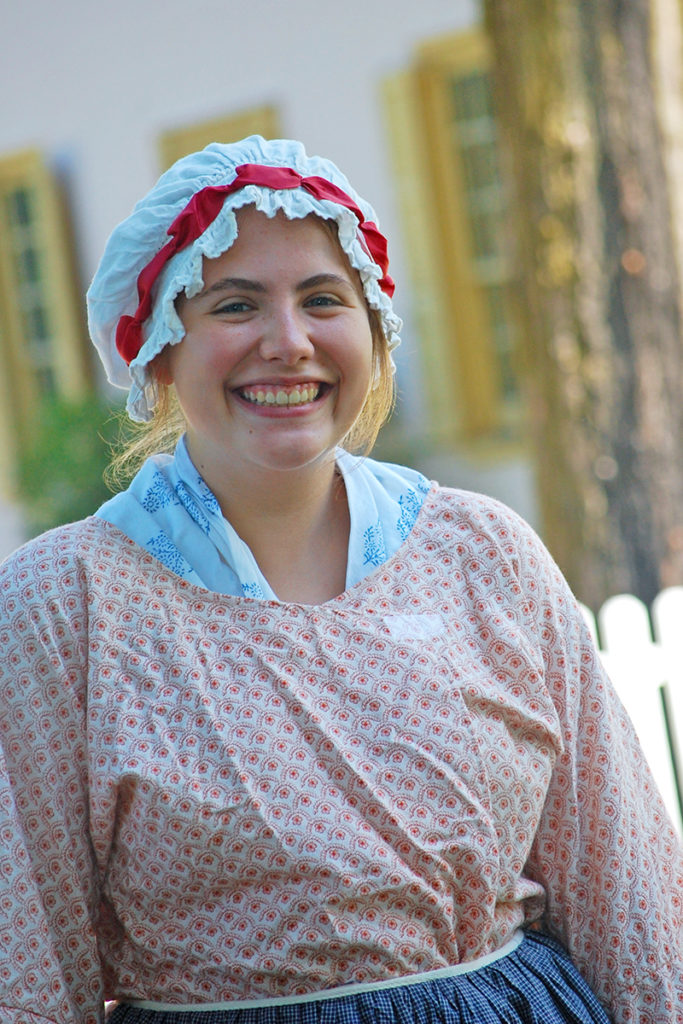
Washington Crossing native Brynn Smith, a sophomore history education major at Ithaca College in New York, has spent the summer immersed in history at Washington Crossing Historic Park.
She’s there for a summer-long internship sponsored by the Kiwanis Club of Washington Crossing-Yardley.
“I’ve known my whole life that I wanted to teach, but I wasn’t sure what subject until late in high school,” Brynn says. “Since I love to read, English seemed the obvious choice, but I like storytelling, and that’s a big part of history.”
Since May, Brynn has been filling in wherever she’s needed around the park. The first month was spent helping with the dozens of school field trips that take place each spring. “I was busy almost every day with those,” she says. “I got to dress up in Colonial clothing and teach students about things like candle dipping, quill writing, butter making, and Colonial-era toys and games.
“I loved working with the kids, and it helped me learn more about the cultural side of life in Colonial America,” she continues. “In school, we often learn about history’s ‘big events’ but not always what day-to-day life was like in the past.”
Brynn is currently working on writing lesson plans that teachers can use before or after their visit to the park. The plans will be placed on the park’s website so they can be used by any teacher, no matter their location.
“Writing the lesson plans is real-life experience that directly relates to my major,” Brynn says. “I feel like what I’m doing here at the park has put me way ahead of my peers at school, most of whom haven’t written lesson plans yet.”
According to Jennifer Martin, executive director of the Friends of Washington Crossing Park, the annual Kiwanis internship is a wonderful learning opportunity for those interested in history.
“Thanks to the generosity of the Kiwanis Club, Brynn has a unique opportunity to spend the whole summer immersed in the field of historical interpretation, nourishing her interest in history,” Jennifer says. “Opportunities like this one are critical for developing our next generation of historians and teachers.”

